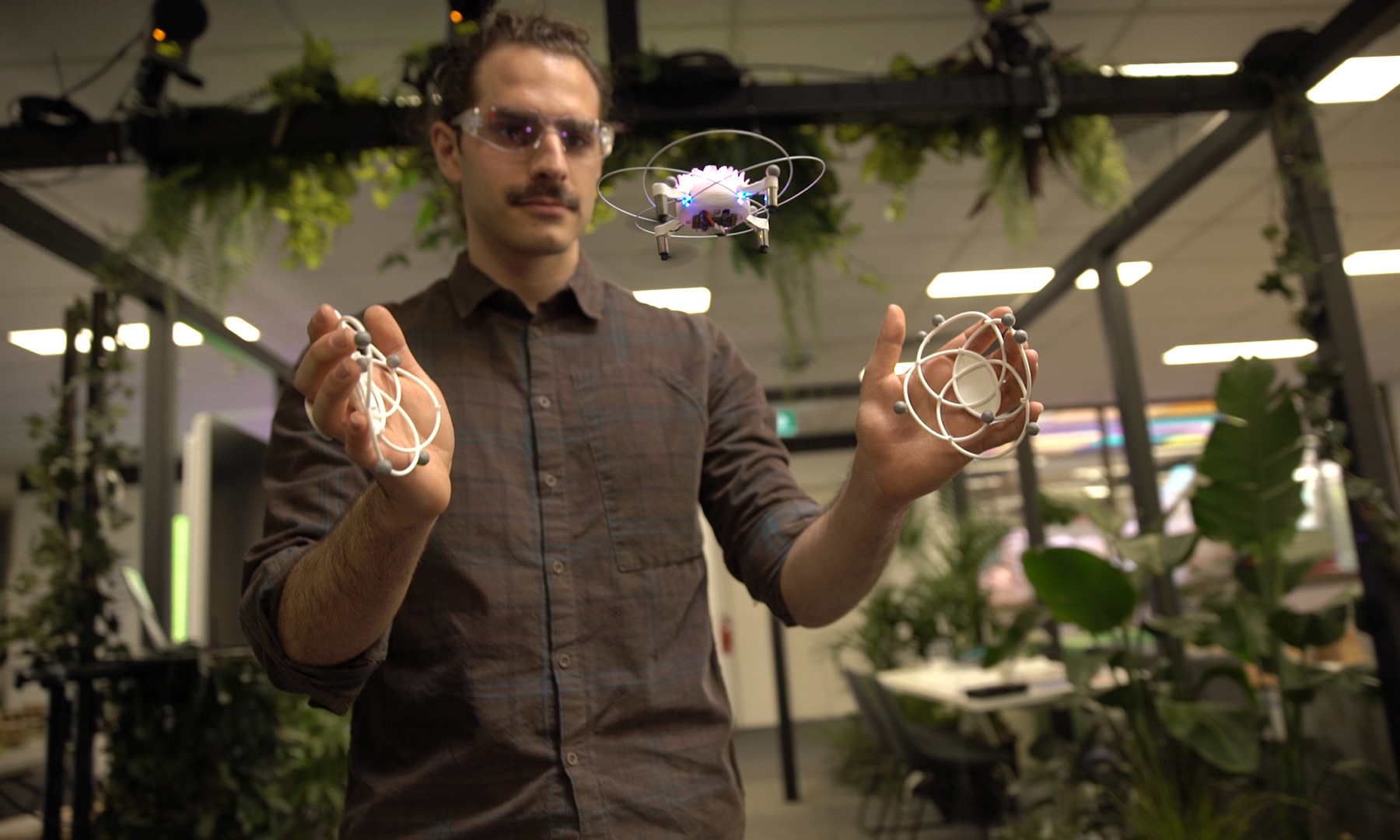
THANKS TO SUSAN FEITOZA THE NEW ECOSYSTEM LEAD FOR OUR MELBOURNE ECOSYSTEM LED BY RMIT. ECHALLIANCE WILL BE SHORTLY ANNOUNCING AN EXCITIING POP UP ECOSYSTEM – AUSTRALIA AND EUROPE TACKLE COVID 19.
The unmanned aviation industry was already booming prior to COVID-19 and during the pandemic we’ve seen drones called into action to safely deliver supplies and, more controversially, detect temperatures, check the distance between people and monitor their movements.
COVID-19 has highlighted how, when forced to do so, we can quickly adapt to and see the value in new technologies, and experts agree that drone technology can play an important role in the fight against the pandemic – sometimes in surprising ways – but also highlight privacy and ethical considerations.
Reducing the risk of first responders
Distinguished Professor of Chemical Engineering Leslie Yeo’s research encompasses the development of microdevices and nanotechnology for broad applications across biomedical and pharmaceutical applications.
He said the ability to remotely disinfect surfaces or rooms using drones or other autonomous vehicles would significantly reduce the risk of exposure of first responders and other personnel to hazardous scenarios, which becomes especially important for highly infectious agents such as the COVID-19 virus.
“RMIT has developed a miniaturised advanced nebulisation system for the aerosolisation of both therapeutic and disinfection agents, Yeo said..
“The technology is sufficiently lightweight and portable that it can be mounted entirely on a drone to remotely and autonomously administer these agents onto contaminated surfaces and rooms via spray deposition without putting the operator at risk.”
Ethics and privacy
Professor in Computational Logic James Harland’s particular area of interest is in robotics and their safe interactions with humans.
He agrees that drones have the potential to play a very useful role in preventing the spread of COVID-19, whether by monitoring whether someone is self-isolating, as we have seen in some countries, or detecting people’s temperatures from a distance.
However, he points out that issues of privacy and personal security are the same for drones as they are for many of our other new technologies, such as social media or mobile phone use.
“While there might be clear societal benefits to employing drones in response to COVID-19, we should be very conscious of the ethics of using devices such as drones and asking questions about how much information we’re giving away, and how is that information being used, Harland said.
“I think the touchstone, as with much of this technology, comes down to informed consent.
“That is really important in all of this.”
Human-drone interaction
PhD researcher Joseph L Delfa, is working with RMIT’s Health Transformation Lab to explore how the use of drones in meditation practice (drone chi) could have multiple health-promoting applications, from falls risk assessment to physical rehabilitation.

He said the drone technology he’s developed has great potential to be used as a social motivator, in the absence of human interaction, as well as a diagnostic tool.
“We want to explore options for the drone to act as a guide in lockdown situations like we are experiencing now, where you can’t have a human presence to guide and motivate you.”
“So, the drone could act as a physical, guiding presence, bringing the users’ attention to their movements and providing immediate feedback they might not be able to sense themselves.”
La Delfa said drone technology could also help physiotherapists and clinicians assess the progression of a patient’s rehabilitation from afar, without having to have any face-to-face contact, which is useful not only in a situation like COVID-19 but in situations where a patient might live in a remote community or can’t physically visit their physician.
A documentary capturing La Delfa’s final year of research and the development of DroneChi – an interactive, human-drone experience for Tai Chi meditation – premiered at Transitions Film Festival and has now been released on RMIT’s YouTube channel.
Joe’s Drone’s can be viewed here.
Source: https://www.rmit.edu.au/news/all-news/2020/may/using-drones-in-the-pandemic
